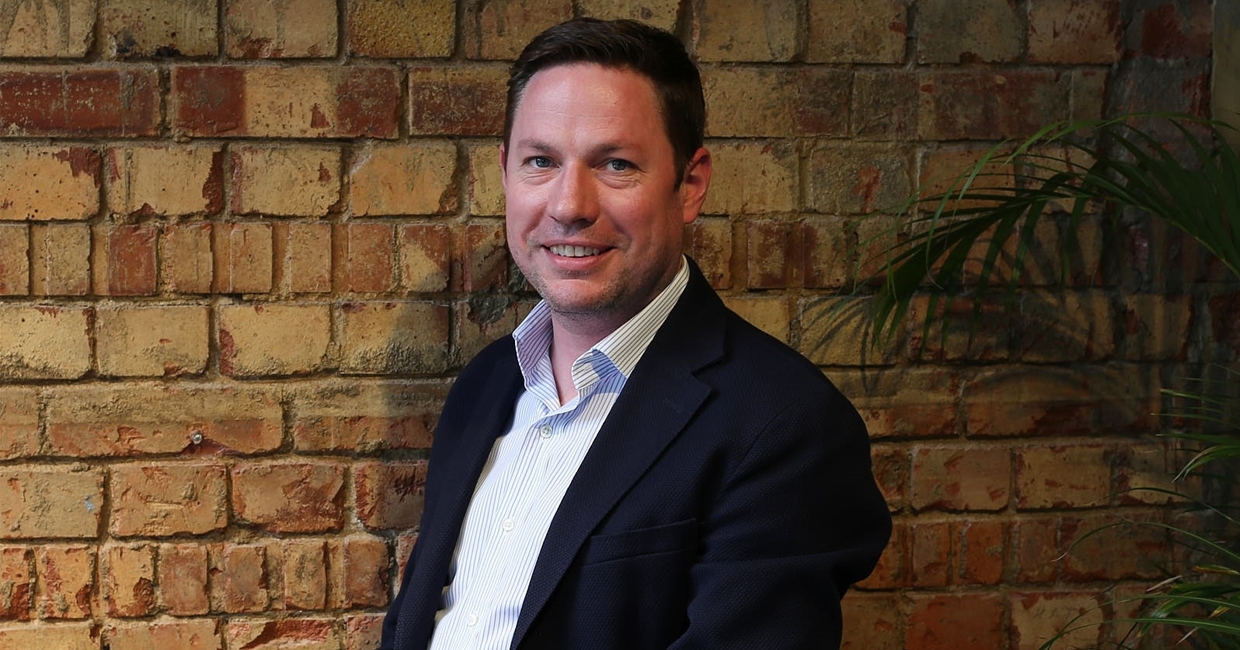Lombok once had a unique place in the market. It successfully sold exotic hardwood cabinet through its stores, website and mail order catalogue long before multichannel retail became fashionable, and it did so with an environmental conscience. That was before two administrations – in 2009 and 2011 – prompted it to downsize its footprint and ambitions. But now, Lombok is under new management – Paul Farley met commercial director Julien Sannier to discover which direction he’s planning to take …
“It’s almost like we’re a start-up business with a strong brand,” Julien says, walking me through Lombok’s remaining physical outlet on Tottenham Court Road.
The product and décor has undergone significant change since I was last here, in 2017 – some 60% of Lombok’s offer is new, and there’s far more upholstery than one might expect.
“Business in our industry is driven by innovation, and surprising people,” says Julien, “but nothing happened at Lombok for so long – it’s been the same collection for 15 years.”
Entrusted by its new owner rebuilding Lombok in their image, the management team – comprising directors Keiran Hewkin and Paul Fielden, who were joined by Julien in February – have pulled out all the stops to deliver a retail experience that’s Lombok, yet refreshingly different. Gone are the rainforest overtones and sea of colonial dark teak, replaced by a portfolio that’s more contemporary in design yet retains the hallmarks of craftsmanship which once set the brand apart.
“It’s a different market these days,” says Julien. “Now that the likes of Swoon, Made, and Sofa.com are competing with us online – and other players like West Elm and Maisons du Monde are entering a solid wood cabinet market that’s similar to ours – it’s crucial that we appeal to a modern audience, yet manage to maintain our unique identity.”
Alongside established favourites like wooden four-poster beds, there’s somewhat more mainstream dining cabinet with industrial stylings, a smattering of accessories (“it’s important to be inclusive of all budgets,” says Julien), and those aforementioned upholstered chairs and sofas.

Basement displays, adjacent to the Ochre House design studio (photo by Mark Bolton)
Keiran and Paul supplied the retailer with upholstery before they joined Lombok, all made in Portugal under the auspices of their white-label manufacturing operation, Ochre House. The partnership worked so well that Lombok’s new owner decided to bring the two together more formally – today, Ochre House is a part of the wider Lombok business, its workshops manufacturing exclusive premium upholstery for retail, and its interior design arm represented through an in-store studio.
Not only is Lombok’s upholstery made to order closer to home than its cabinet, and to exacting standards, but the partnership means the retailer is also able to offer models tailored to meet customer demand. “We’re offering a bespoke service at a high street price,” says Julien, pointing out ways in which the dimensions and features of a piece of upholstery can be customised for a small fee.
Although Julien’s background – he joined Roche Bobois at 22, before going on to work with The Sofa & Chair Co, then The Rug Co – has seen him immersed in design, merchandising and buying, he’s aware that pricing strategy is the crucible in which Lombok’s future will be decided.
“I strongly believe in exclusivity, but so many retailers have become pretentious – everything these days is about ‘luxury’, and I hate it,” he says. “Nothing that’s of a good quality is affordable any more, and I believe there’s a significant demographic out there looking for aspirational furniture that isn’t out of their price range.”
Lombok’s loyal customers continue to engage with the retailer online, he says, while those visiting the store “feel quite different” in their tastes – and Julien is relieved that Lombok’s offer is starting to hit both marks.
In 2016 – later revealed to be apropos to a company sale – Lombok’s then-CEO Stuart Lewis expressed his ambition to grow the business’ store footprint to as many as eight by 2020, with an initial focus on the South-east. Lombok’s new owner has expressed no similar plans, but Julien does reveal a likely direction: “It will take a bit of time to see what’s working, but there are plans to expand and franchise the concept once it’s established,” he says.

Lombok’s store at 204-208 Tottenham Court Road has undergone serious refurbishment (photo by Mark Bolton)
“Currently, most of our customer base resides in North London, so we’d initially look there, or to destinations like the Westfield centres, and potentially shop-in-shop studios. We’re also looking to expand strongly abroad.”
But the consumer is not Lombok’s only target market. By bringing Ochre House into its stable, it has shown it’s serious about growing its trade-facing business, and is encouraging store visitors and interior designers to engage with its (now) in-house project delivery service.
Run by Keiran and Paul, the 75 sqm Ochre House design studio occupies half of the store’s painstakingly-refurbished basement. While the principals – from petrochemical and pharmaceutical backgrounds, respectively – continue to unlock a new European supply chain, they’re thoroughly enthused by the prospect of welcoming trade customers to their new home in the heart of London’s interiors row.
The company is only 15 months old but has executed projects in hotels and residences around the capital, discovering a particular aptitude for mixed-media manufacturing – as well as doing sterling work on Lombok’s upholstery lines.
At the other end of the basement is Jack and Tara, a children’s furniture shop-in-shop. According to Julien, having Ochre House and Jack and Tara within the store is not just about making the best use of the space, but is geared towards creating more of a multifaceted, communal atmosphere there.
“Interior designers can use this space to work and engage with our brands,” says Julien, “which, in turn, will help the store become a hub for London’s design community.”
Having worked so hard to refresh the space, the team is making the most of it, and is planning to throw a party in October to celebrate Lombok’s 20th anniversary.
Julien and his colleagues are clearly working hard to make up for the brand’s former mis-steps. They exude creative energy, and are channeling their combined knowledge to make Lombok fit for the future.
“Yes, we had a bad reputation for customer care,” admits Julien. “For some inexplicable reason, Lombok’s customer services had been outsourced, which inevitably led to customer frustration – especially during the more difficult times.
“But the past is the past. That was the first thing Keiran and Paul sorted out when they took over, and April was Lombok’s best month for sales in three years. We just need to let the new ranges settle, and resist the urge to expand too quickly, or order too much.
“This iconic brand is far from dead – it just needs to bring in a new generation of customer. And when it does, they’ll see that it’s been worth the wait.”
This interview was published in the July 2018 issue of Furniture News magazine – see the online issue for more in-store and product shots.







